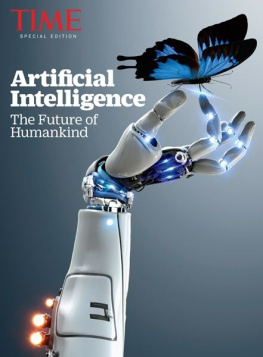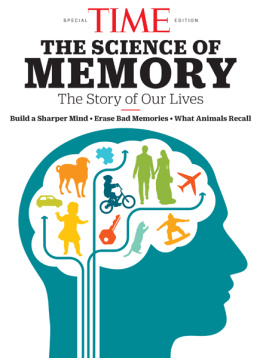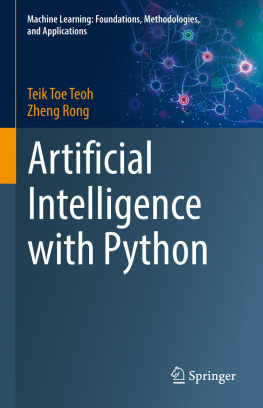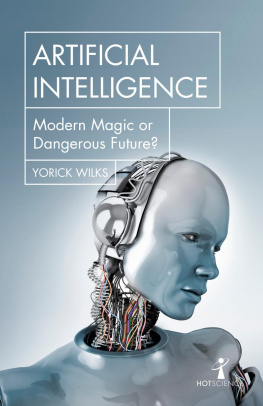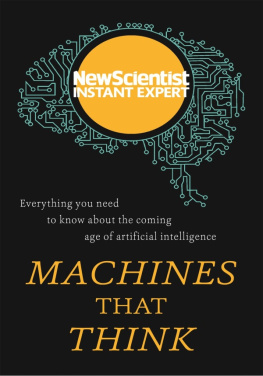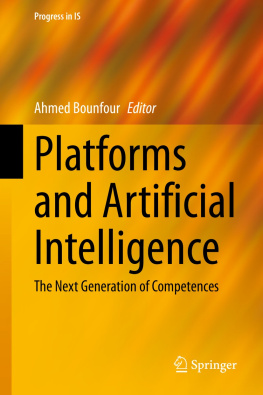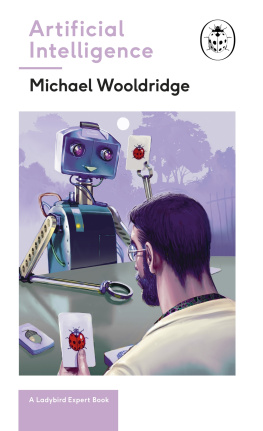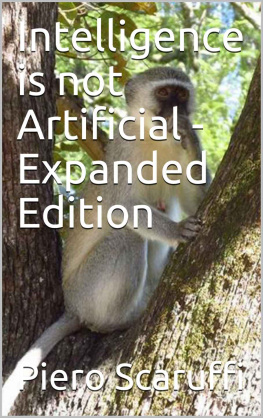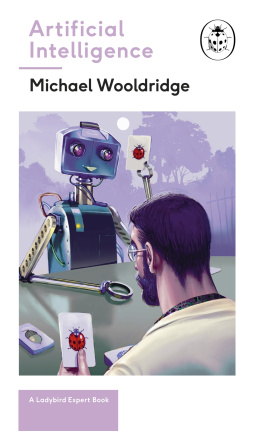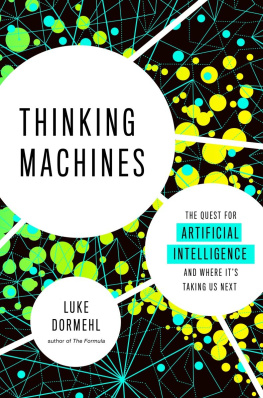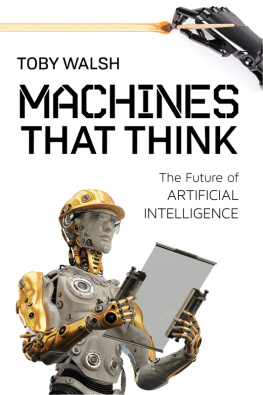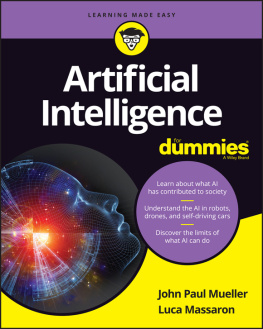
Artificial Intelligence
The Future of Humankind

Contents

Parts of this edition were previously published by TIME and Fortune .
INTRODUCTION:
How A.I. Is Transforming Our World
Artificial intelligence is spreading into our homes, our jobs, our hospitalsand outer space
By Matt Vella

The field of artificial intelligence research was born on the leafy campus of Dartmouth College in the summer of 1956. Over the course of six weeks, a small group of mathematicians and scientists met daily on the top floor of the colleges math department, abandoned by students and faculty for the midyear break. The workshop amounted to an extended brainstorming session, forgoing directed group research in favor of freewheeling discussion and debate. The group, credited with coining the term artificial intelligence, proposed to show that every aspect of learning or any other feature of intelligence can in principle be so precisely described that a machine can be made to simulate it. They went on: We think that a significant advance can be made in one or more of these problems if a carefully selected group of scientists work on it together for a summer.
It may have been a midcentury humblebrag, but they did what they set out to do. And in the process, they founded the discipline now clearly on the verge of revolutionizing the world. Artificial intelligence, as the pages that follow show, is poised to dramatically change everything from how astronomers explore the edges of our universe to whether your stereo understands you were asking for more John Lennon, not John Legend. Almost all the hallmarks of our current technological momenttalkative digital personal assistants like Siri and Alexa, genomic-research breakthroughs, instantaneous language translation, self-driving carshave at their foundation one key, if broad, thing in common: artificial intelligence, or A.I. Several decades after that summer of theory at Dartmouth, the field is experiencing something akin to the Cambrian explosion, the geological era when most higher animal species suddenly burst onto the Earth.
What few realize is that all these breakthroughs are, in fact, one big breakthrough. They have more or less been made possible by a subset of A.I. known as deep learning, or deep neural networks, as academics refer to them. These concepts, some of which were debated at Dartmouth all those decades ago, essentially describe self-teaching computer programs. Rather than programming for every conceivable scenario, engineers have given the computers behind, say, advanced voice recognition a learning algorithm and proceeded to feed it terabytes of datayears worth of speech samples, for example. Then the computer attempts to figure it out for itself. This basic formula is being repeated in medical diagnoses, self-piloting vehicles, crash-proof drones, you name it. The combination of todays vast computational power and the enormous storehouse of data that is the internet proved to be the catalyst to make the A.I. revolution move from theory to world-changing practice.
This volume explores the recent evolution of that practice. Roger Parloffs story on the deep-learning revolution shows how broad the A.I. movement has become in recent years, and the thread of his argument extends to fields ranging from the military and astronomy to medicine and the labor market. Other stories in this special edition show how A.I. is creeping into our day-to-day lives, especially in the ever-smarter technology consumers find they cant live withouttheir phones and voice-controlled home gadgets and so on. The final section looks at the cultures attempts to quantify and understand what all of this means.
What this book will not do is try to scare you about the impending doom for humanity A.I. supposedly represents. This has been a common trope of science fiction for decades and, more recently, a crutch a little too easily leaned on by Hollywood, from Terminator to the latest Avengers . Evil A.I. is, after all, the literal deus ex machina.
To be sure, some very smart people legitimately fret over the future of A.I. In 2014, Stephen Hawking didnt mince words with the BBC, saying, The development of full artificial intelligence could spell the end of the human race. Elon Musk, the multi-hyphenate genius behind PayPal, SpaceX and Tesla, says the technology is potentially more dangerous than nukes. He nevertheless maintains some investment in the field to keep an eye on its advancements. With artificial intelligence, we are summoning the demon, Musk once said. In all those stories where theres the guy with the pentagram and the holy water, its likeyeah, hes sure he can control the demon. Doesnt work out. Perhaps. But as plentiful as the advances have been in recent years, the so-called singularitythe period of machines capable of reasoning exceeding the human mindis still nowhere in sight. Even those most wary of A.I.s advancement and future admit this in conversation sooner or later.
The anxiety around A.I. is part of a much deeper vein of fear. Because, though that summer of 1956 was a fundamental turning point, the absolute history of A.I. began in antiquity, with myths and stories of artificial beings endowed with consciousness by master craftsmen. As Pamela McCorduck, a prolific historian of A.I., put it, artificial intelligence began as an ancient wish to forge the gods. Examples include the mechanical beings that appear in Greek myths, such as Pygmalions Galatea and the golden robots of Hephaestus. Middle Ages rumors told of secret alchemical means of imbuing matter with mind: there was Jabir ibn Hayyans Takwin, Paracelsuss homunculus and Rabbi Judah Loews Golem, for example. By the 19th century, similar ideas had become cornerstones of Mary Shelleys and, later, Karel apeks fiction. Human beings, in other words, have been preoccupied with the idea of artificial intelligenceits potential and its potential pitfallsfor a very long time. And now a new era begins.

IBM Watson

Russian rescue robot FEDOR

Amazon Echo

Deep Space 1
Glossary of A.I. Terms
Artificial Intelligence
A.I. is the broadest term, applying to any technique that enables computers to mimic human intelligence, using logic, if-then rules, decision trees and machine learning.
Machine Learning
The subset of A.I. that includes statistical techniques that enable machines to improve at tasks with experience.
Deep Learning
The subset of machine learning composed of algorithms that permit software to train itself to perform tasks, like speech and image recognition, by exposing multilayered neural networks to vast amounts of data.
Next page
